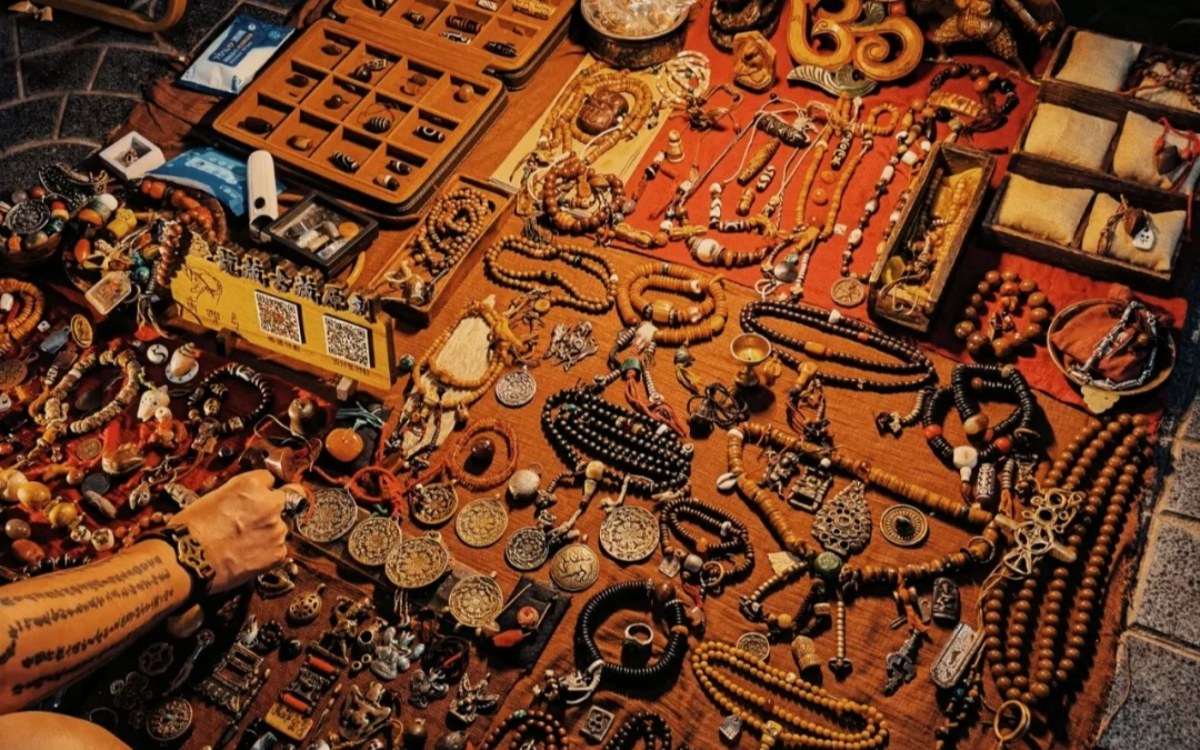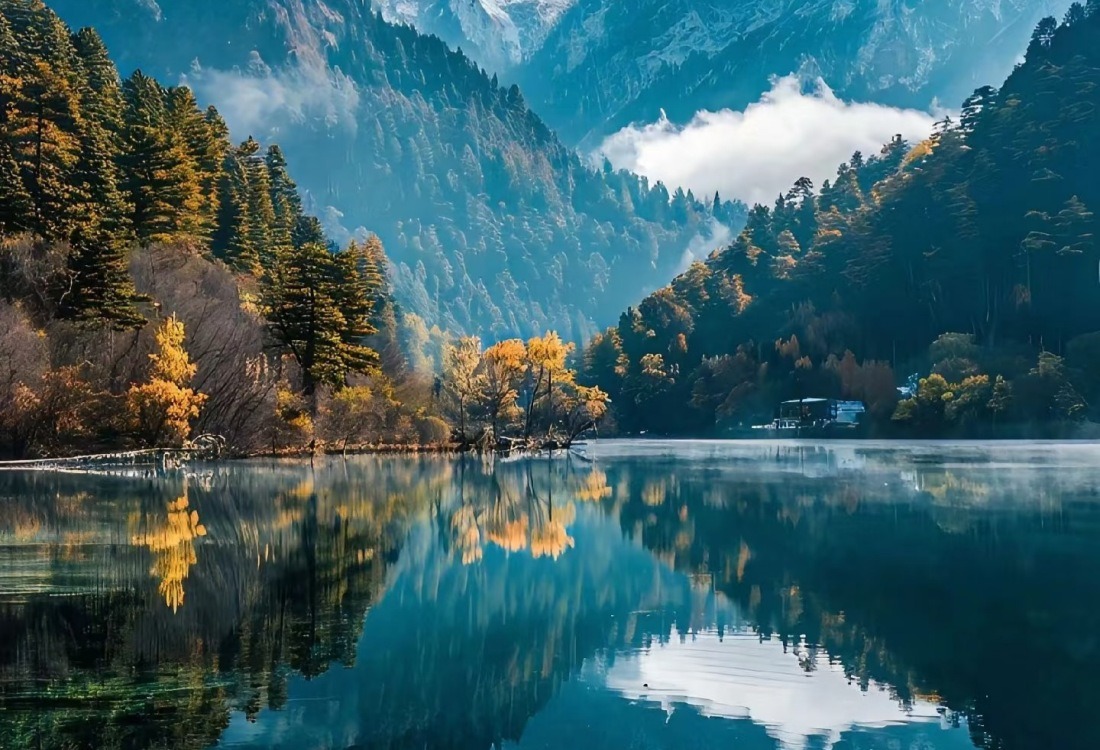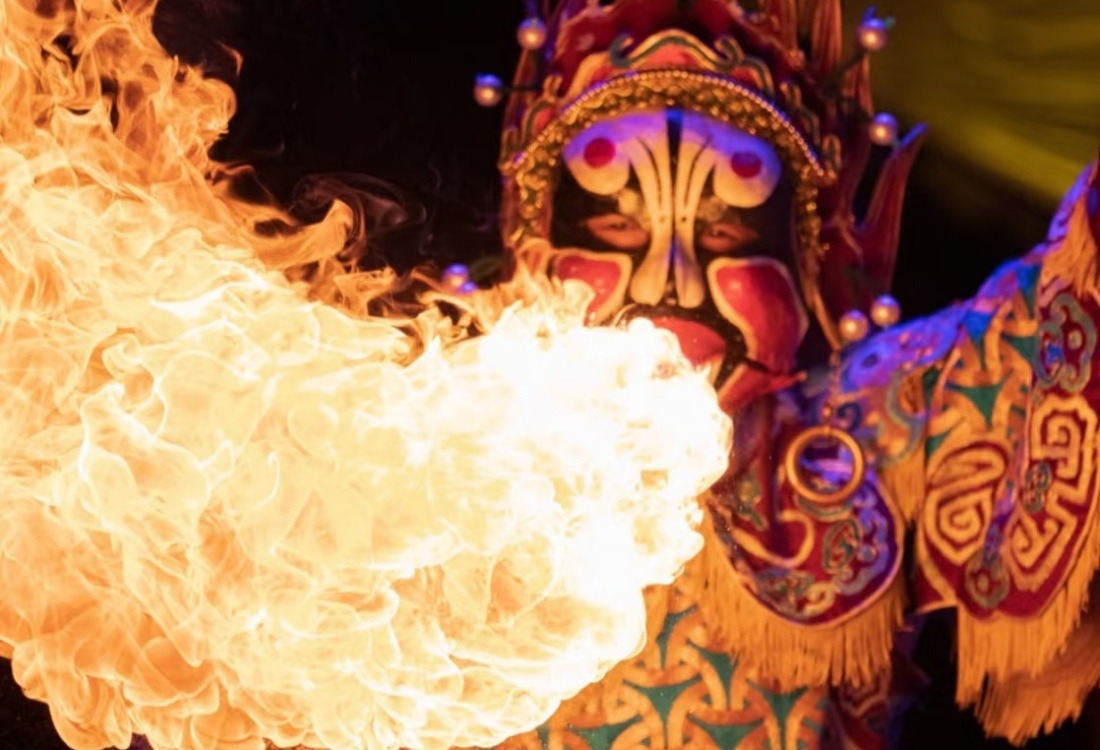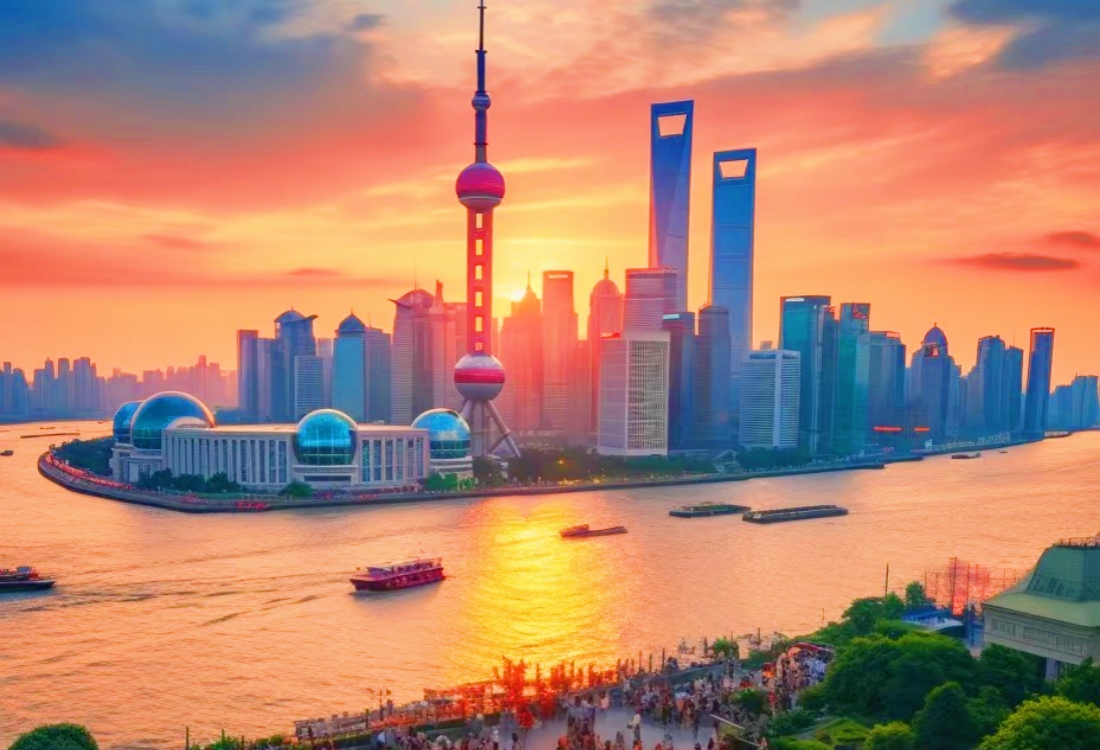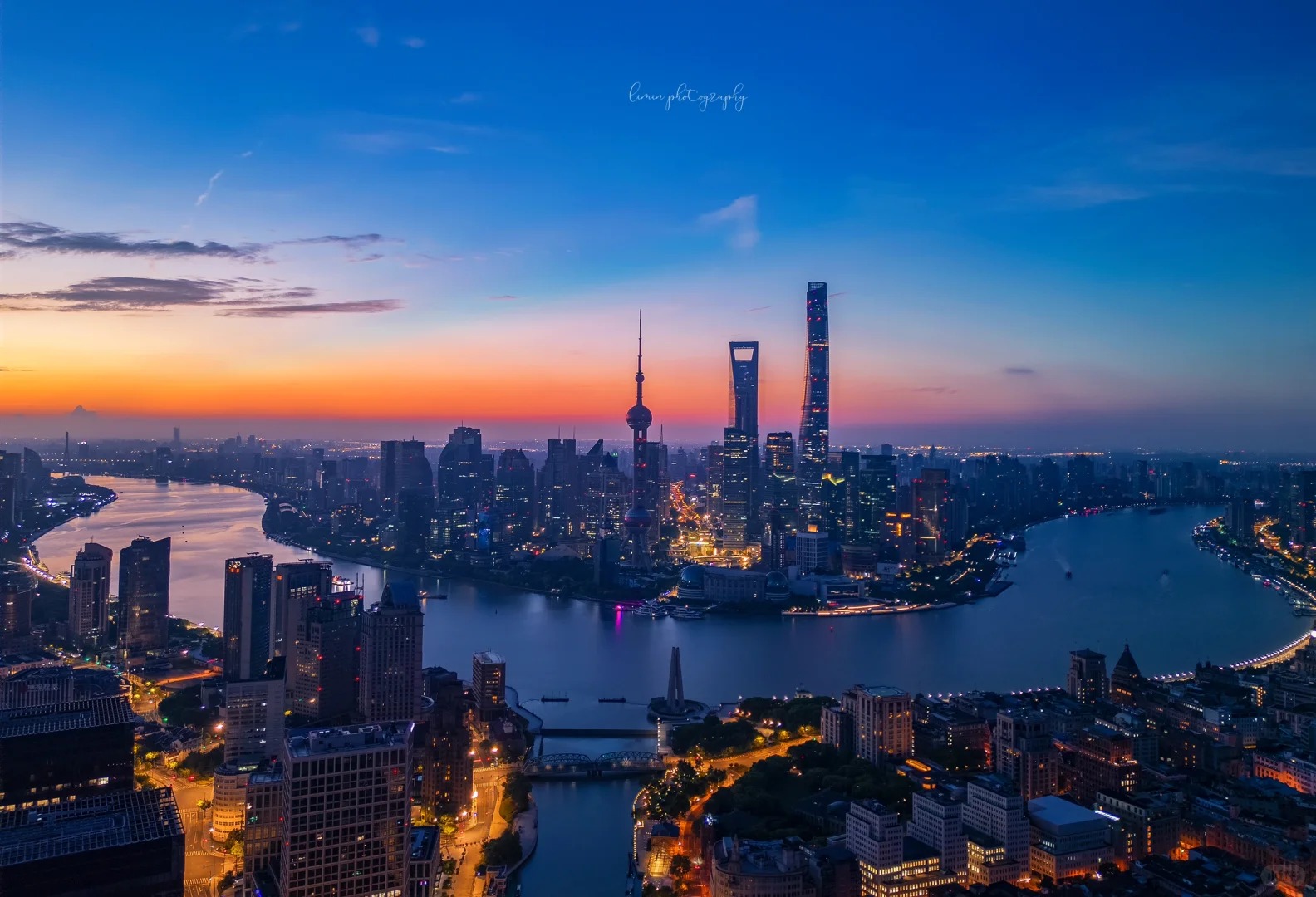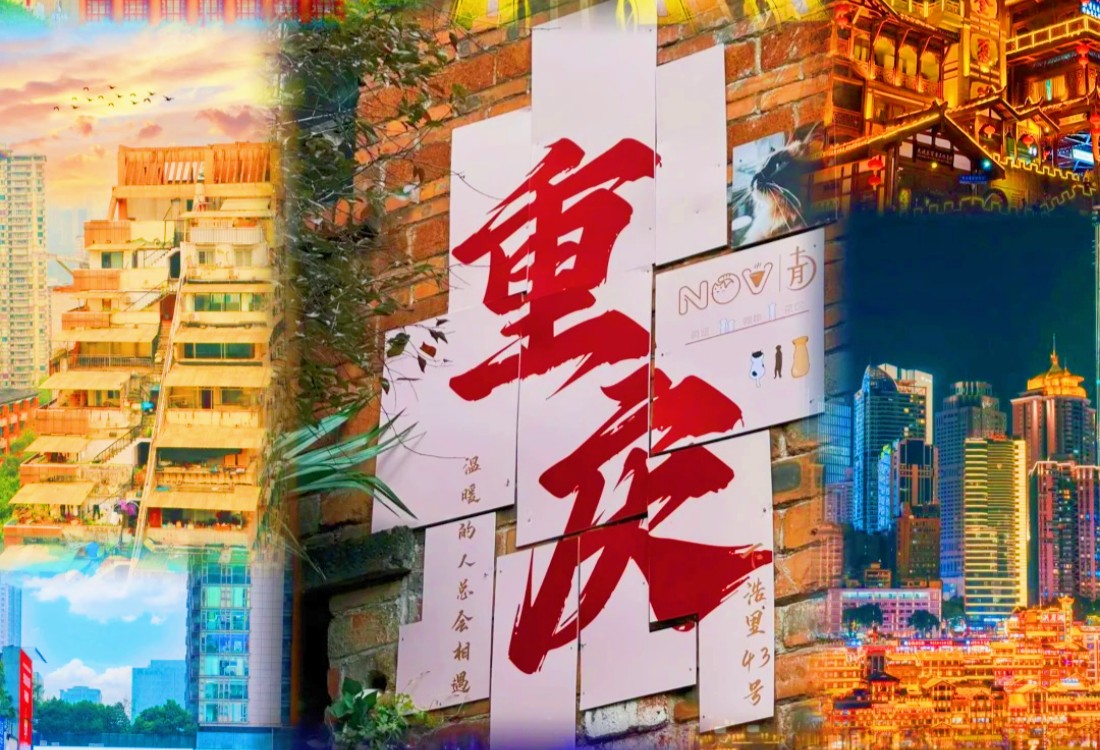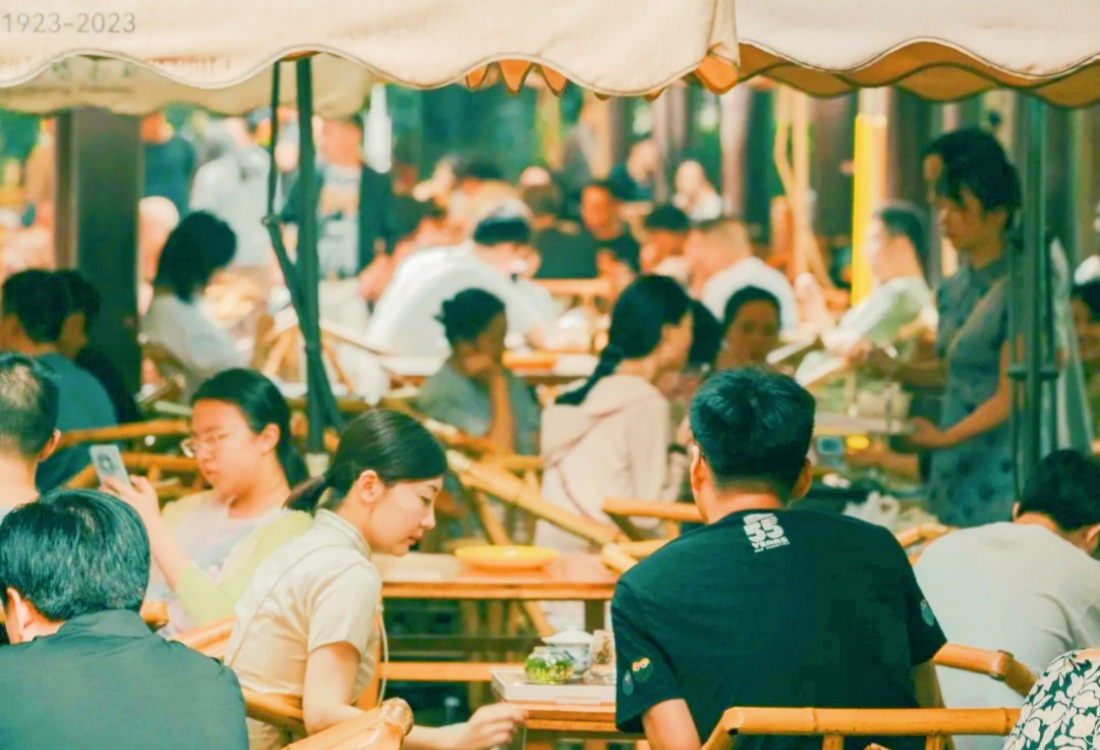Table of Contents
ToggleWelcome to the Panjiayuan Antique Market in Beijing! This place is a famous spot for people who love history and unique items. First, it is important to know that Panjiayuan is more than just a market. Next, it is a vibrant cultural experience. Here, you can find countless treasures and get a real feel for Chinese heritage. This article will guide you through everything you need to know. So, let’s begin our journey into this fascinating world of antiques and crafts.
Where Is Panjiayuan Antique Market?
Located in the Chaoyang District, Panjiayuan is a large open-air and indoor market. It covers over 40,000 square meters. More than 3,000 vendors sell antiques, collectibles, art, and handcrafts. It is especially lively on weekends.
This market is popular with locals, collectors, and tourists. It reflects the rich cultural diversity of China, with items from many regions and ethnic groups.
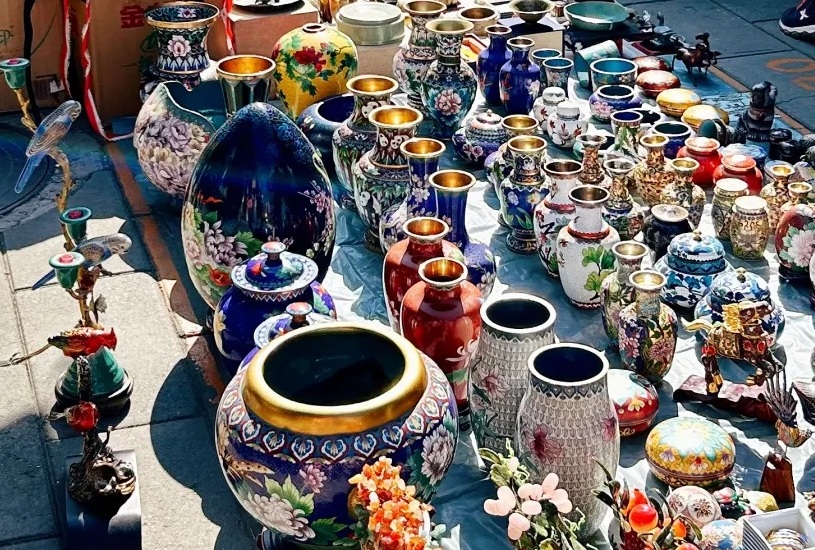
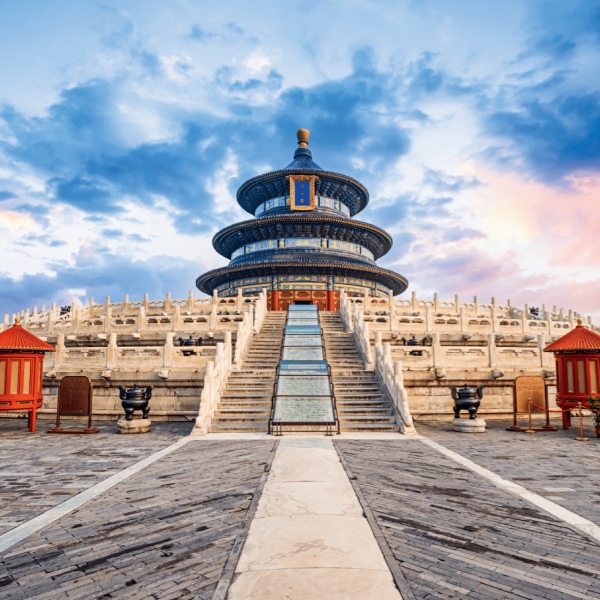
1 Day Beijing Day Tour : From Tian’anmen Square to Jingshan Park
Why Visit Panjiayuan Antique Market?
Panjiayuan Market stands as Beijing’s ultimate destination for antique lovers and cultural explorers. Here’s why this market deserves a spot on your Beijing itinerary:
Historical Significance
Began in the 1980s as a grassroots trading spot
Earned the nickname “Dirt Market” from its farmer origins
Represents China’s growing antique collecting culture
Unmatched Variety
Over 3,000 vendors across 48,500 square meters
Spans authentic antiques to creative handicrafts
Covers every category from furniture to folk art
Authentic Beijing Experience
Witness lively bargaining traditions firsthand
Meet knowledgeable vendors with fascinating stories
Feel the pulse of China’s antique trade culture
Cultural Treasure Hunt
Discover hidden gems among the stalls
Learn to identify different dynasties’ styles
Find unique pieces unavailable elsewhere
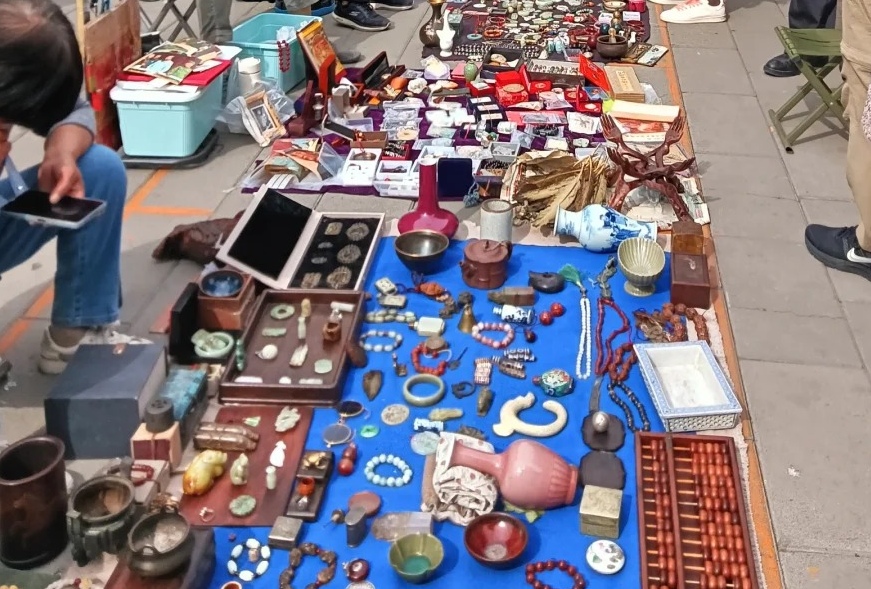
How to Get to Panjiayuan Market
There are two ways to get Panjiayuan Market, however, you need to get a subway and bus card to take the subway or bus, And it requires a transfer, which is a bit inconvenient.If you sign up for our tour group, we will provide a special vehicle to pick you up and drop you off.
| Transport Method | Details |
|---|---|
| Subway | Take Line 10 to Panjiayuan Station, Exit B. Walk 5 minutes to the market. |
| Bus | Buses like 28, 368, and 802 stop nearby. |
Best Time to Visit
Spring (April-May) – Pleasant weather with blooming flowers.
Autumn (September-October) – Clear skies and vibrant foliage.
Avoid Summer Midday – Can be hot with limited shade.
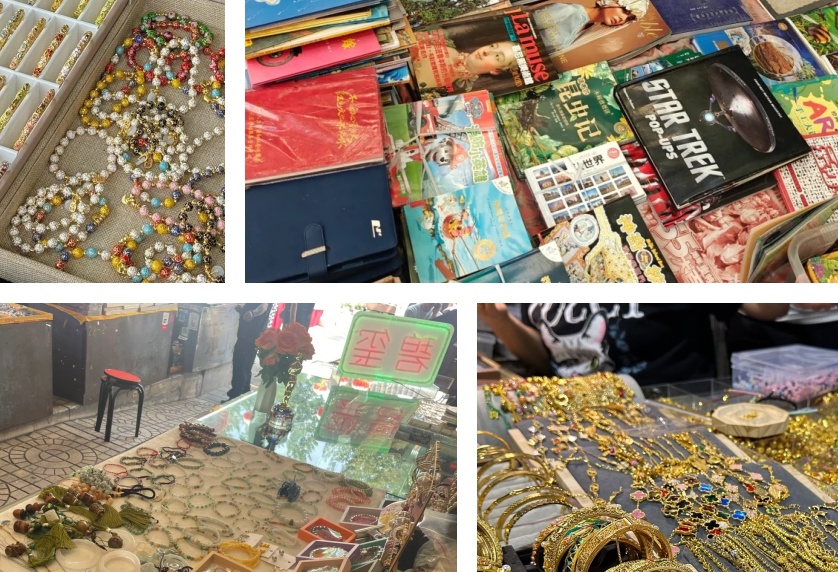
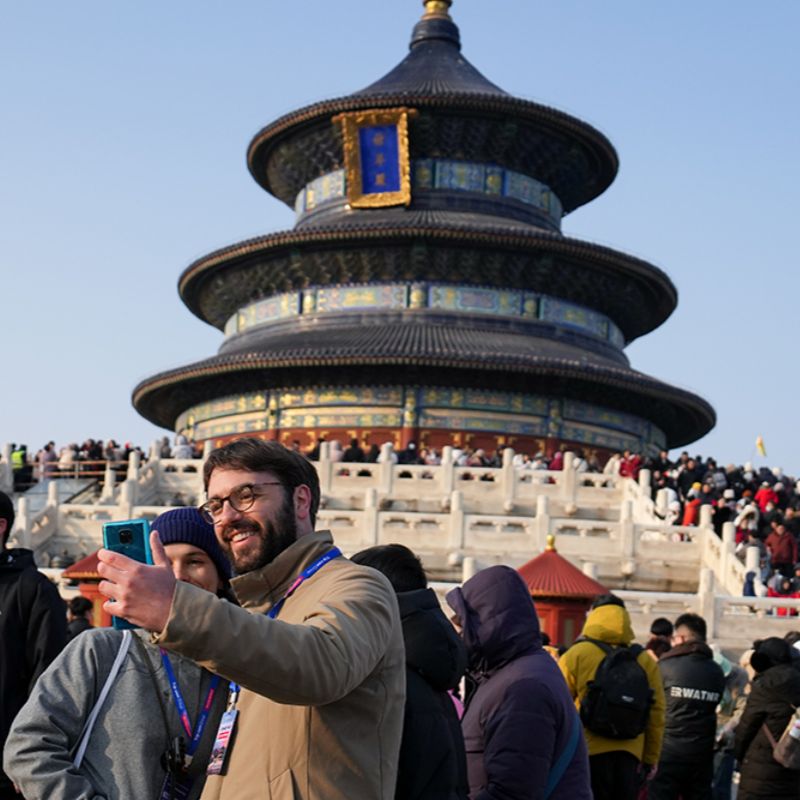
3 Days Beijing Highlights Tour : Hutong Rickshaw Ride Experience
What to See at Panjiayuan
There is a lot to see. Different areas of the market focus on different types of items. Here are the main sections:
- Stone Carvings and Sculptures
You will find statues, jade carvings, and Buddhist figures. Some are large and ornate. Others are small and easy to carry.
- Calligraphy and Paintings
This section includes scrolls, ink work, and traditional Chinese landscape paintings. Some are modern works in old styles.
- Cultural and Ethnic Crafts
There are crafts from many Chinese ethnic groups—embroidered clothing, silver jewelry, and handwoven bags.
- Old Books and Paper Goods
You can browse through vintage magazines, maps, stamps, and handwritten letters.
- Ceramics and Porcelain
Look out for colorful vases, teapots, and plates. They come in many styles, from Ming-style to folk art.
- Curios and Trinkets
Small bronze figures, wooden masks, locks, coins, and everyday objects from old China fill these stalls.
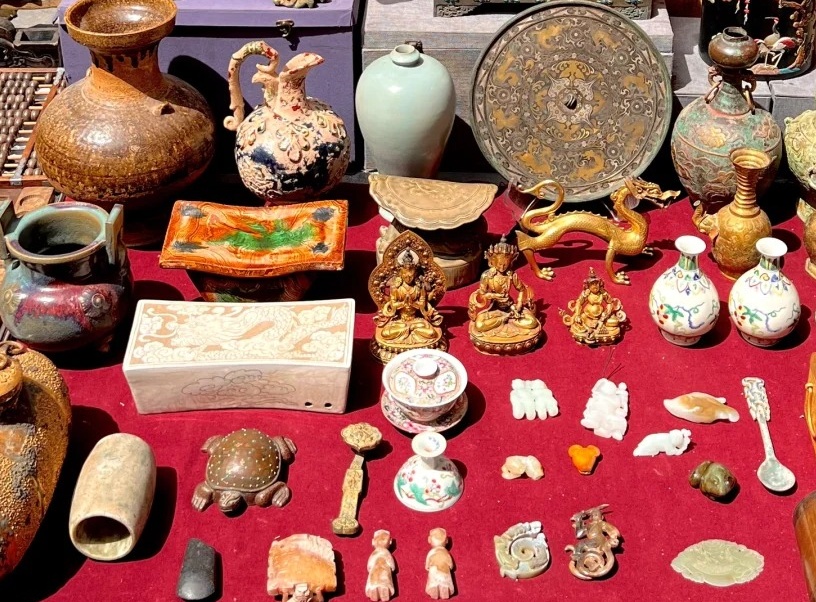
What to Buy: A Shopper’s Paradise
Finding Your Perfect Souvenir or Collectible
Panjiayuan is a dream destination for those looking to buy antiques, crafts, collectibles, and unique decorations. The sheer variety is astounding.
First, consider items that truly reflect Chinese culture and craftsmanship. For example, porcelain and ceramics are very popular. You can find delicate Ming and Qing Dynasty style vases, tea sets, and various pottery pieces.
Next, explore the world of Chinese calligraphy and painting. Many stalls offer beautiful brush paintings, ink stones, and scrolls created by local artists.
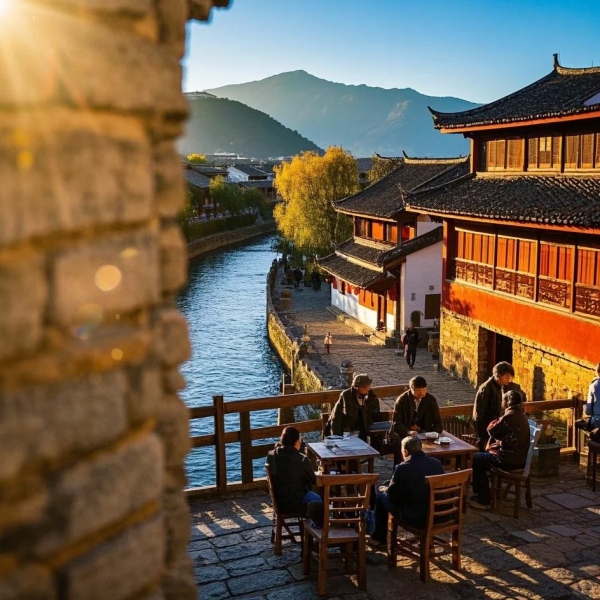
14 Days China Iconic City Tour: Shanghai Yunnan Chengdu Xi’an Beijing
More Popular Items to Consider:
| Category | Examples & Highlights |
|---|---|
| Furniture | Antique-style Chinese furniture, Cultural Revolution-era pieces |
| Four Treasures of the Study | Writing brushes, ink sticks, paper, ink slabs |
| Old Books & Figurines | Antique Chinese books, various figurines |
| Coins | Ancient Chinese coins, foreign currency |
| Buddhism Items | Buddhist statues, thangkas, religious artifacts (mainly in the Buddhism Statues Area) |
| Textiles & Costumes | Vintage clothing, embroidered fabric, traditional Chinese costumes |
| Musical Instruments | Traditional instruments like the erhu (two-string fiddle), pipa (pear-shaped lute) |
| Ornaments & Souvenirs | Paper-cuts, lacquerware, teapots, chopsticks, opera masks, silver and gold decor |
| Vintage Photos & Posters | Historical photographs, propaganda posters |
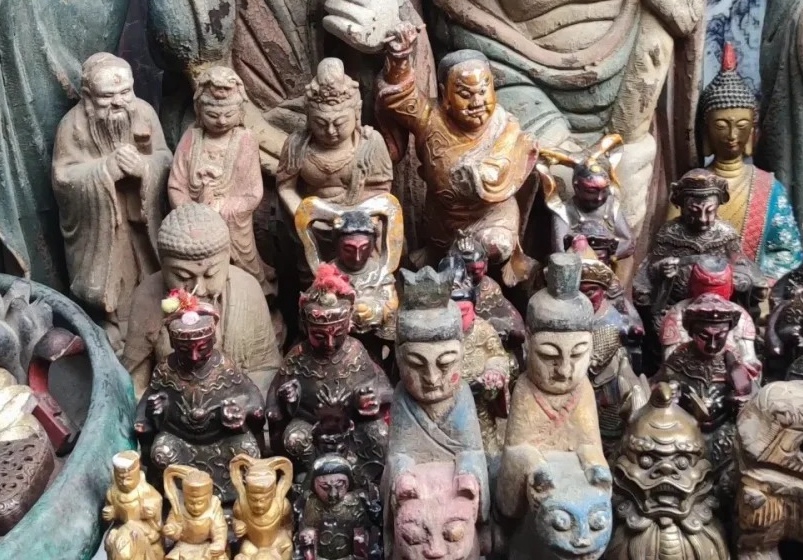
Travel Tips for Visiting Panjiayuan
1. Visit on Weekends for Full Experience
Panjiayuan Antique Market is open every day, but weekends are the best time to visit. Most stalls are active, and the selection of antiques and crafts is much wider. Many part-time vendors only come on Saturdays and Sundays.
2. Arrive Early in the Morning
The market gets busy quickly. Arriving early gives you the first look at rare finds. It is also easier to walk around when the crowds are smaller. Morning light also makes it a good time for taking photos.
3. Wear Comfortable Shoes
The market is large and spread out. You will be walking on uneven surfaces and through narrow paths. Good walking shoes make the visit more enjoyable and less tiring.
4. Bring Cash for Small Purchases
While some vendors now accept mobile payments, many still prefer cash, especially for lower-priced items. Smaller bills are more convenient for bargaining and faster transactions.
5.Watch for Fakes and Replicas
Not everything is truly antique. Some items are made to look old. If you are serious about buying authentic antiques, do some research in advance. Ask the seller questions and look closely at materials and craftsmanship.
6.Respect the Local Culture
Always ask before taking photos of stalls or vendors. Be respectful in your interactions and enjoy the chance to connect with local collectors and artists.
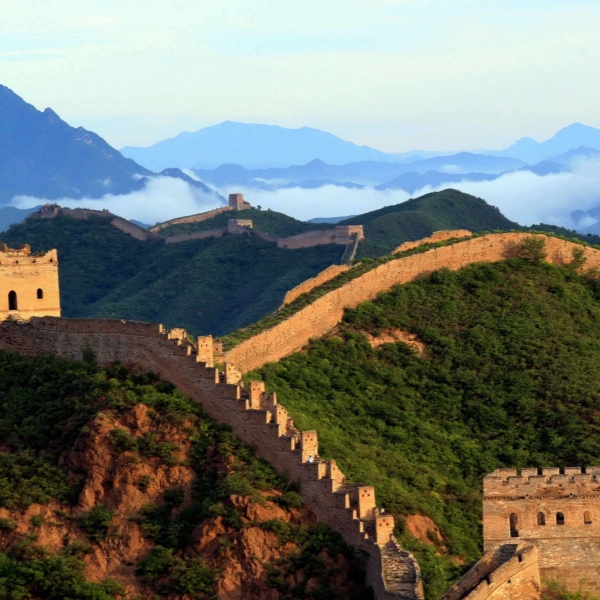
13 Days China Top City Tour : Beijing Xian Zhangjiajie Guilin Shanghai
Frequently Asked Questions (FAQ)
How big is Panjiayuan Market?
The market covers a large area with several sections, including outdoor stalls, indoor shops, and themed zones like the Buddhism Statues Area.
What is Panjiayuan Antique Market known for?
Panjiayuan is famous for its antiques, vintage items, and traditional Chinese crafts. It’s a must-visit spot for collectors and culture lovers in Beijing.
Do I need to bargain at Panjiayuan?
Yes, bargaining is common and expected. Start with a lower offer and negotiate politely for the best deal.
Are the antiques real at Panjiayuan?
Some items are genuine, while others are replicas. It’s important to inspect items carefully and ask questions before buying.
What else is near Panjiayuan Market?
After visiting Panjiayuan, you can explore nearby art zones, tea houses, or continue your antique hunt in other Beijing markets.

